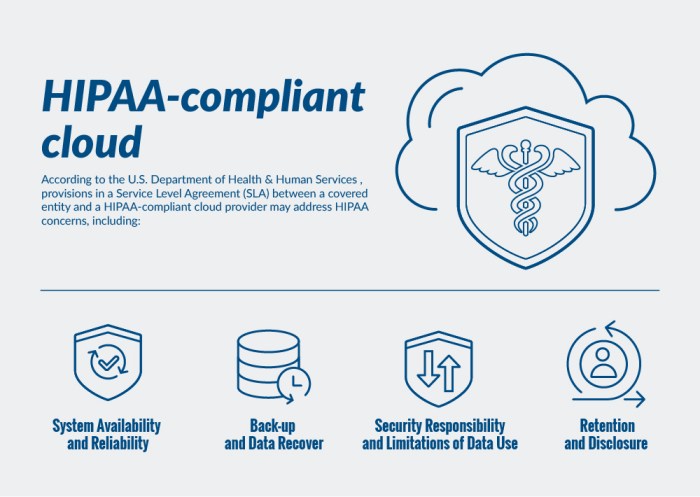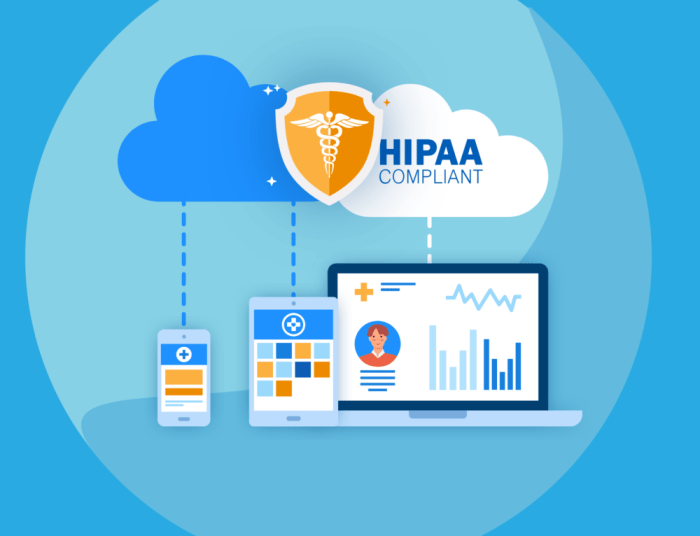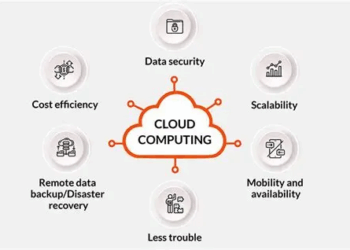
With HIPAA-Compliant Cloud Tools for Global Health Organizations at the forefront, this paragraph opens a window to an amazing start and intrigue, inviting readers to embark on a storytelling casual formal language style filled with unexpected twists and insights.
HIPAA compliance in cloud tools is crucial for global health organizations dealing with sensitive data. This article delves into the significance of utilizing HIPAA-compliant cloud tools for enhanced data security and regulatory adherence.
Overview of HIPAA-Compliant Cloud Tools
HIPAA compliance in the context of cloud tools refers to adhering to the regulations set by the Health Insurance Portability and Accountability Act (HIPAA) to ensure the security and privacy of protected health information (PHI) stored or transmitted through cloud services.Global health organizations that handle sensitive patient data, such as medical records, treatment plans, and personal information, need to comply with HIPAA regulations.
Examples of these organizations include hospitals, clinics, research institutions, pharmaceutical companies, and healthcare providers operating on an international scale.Using cloud tools that are HIPAA-compliant is crucial for data security to prevent unauthorized access, breaches, or data loss. These tools provide encryption, access controls, audit trails, and other security measures to safeguard PHI in the cloud environment, ensuring compliance with HIPAA requirements and protecting patient confidentiality.
Benefits of HIPAA-Compliant Cloud Tools

Using HIPAA-compliant cloud tools offers several advantages for global health organizations. These tools are specifically designed to meet the stringent security and privacy requirements Artikeld in the Health Insurance Portability and Accountability Act (HIPAA), ensuring the protection of sensitive health data.
Enhanced Security Features
HIPAA-compliant cloud tools provide enhanced security features compared to non-compliant alternatives. These tools offer encryption protocols, access controls, audit trails, and regular security assessments to safeguard sensitive health information from unauthorized access or breaches.
Improved Compliance
By using HIPAA-compliant cloud tools, global health organizations can ensure compliance with regulatory requirements. These tools help organizations adhere to HIPAA guidelines, reducing the risk of non-compliance penalties and legal implications.
Cost-Efficiency
HIPAA-compliant cloud tools can also result in cost savings for organizations. By outsourcing security and compliance responsibilities to cloud service providers, organizations can avoid the high costs associated with maintaining on-premises infrastructure and hiring dedicated IT security personnel.
Scalability and Flexibility
HIPAA-compliant cloud tools offer scalability and flexibility, allowing organizations to easily adjust their storage and computing resources based on changing needs. This scalability ensures that organizations can efficiently manage and store large volumes of health data without compromising security or performance.
Real-World Scenarios
In real-world scenarios, HIPAA-compliant cloud tools have played a crucial role in safeguarding sensitive health data. For example, a global health organization storing electronic health records in a HIPAA-compliant cloud experienced a cyber-attack. Thanks to the robust security measures in place, the organization was able to prevent any data breaches and quickly restore services without compromising patient privacy.
Features to Look for in HIPAA-Compliant Cloud Tools
When choosing HIPAA-compliant cloud tools for global health organizations, it is crucial to consider specific features that ensure compliance with the regulations. These features play a significant role in safeguarding patient data and maintaining privacy and security standards.
Encryption Standards for HIPAA Compliance
Encryption is a fundamental requirement for HIPAA compliance in cloud tools. The cloud service provider must implement robust encryption mechanisms to protect data both in transit and at rest. This includes encrypting data stored in the cloud and securing data transmissions to prevent unauthorized access or breaches.
It is essential to look for cloud tools that utilize strong encryption algorithms, such as AES (Advanced Encryption Standard), to ensure the confidentiality and integrity of sensitive healthcare information.
Access Controls and Audit Trails
Access controls and audit trails are essential components for maintaining HIPAA compliance in cloud tools. Access controls help restrict unauthorized access to patient data by implementing role-based permissions, multi-factor authentication, and user authentication protocols. By setting granular access levels, organizations can ensure that only authorized personnel can view or modify patient records, reducing the risk of data breaches.Audit trails are crucial for tracking and monitoring all activities related to patient data within the cloud environment.
They provide a detailed record of who accessed the data, when the access occurred, and what changes were made, enabling organizations to identify any suspicious or unauthorized activities promptly. Cloud tools with robust audit trail functionalities help organizations demonstrate compliance with HIPAA regulations and enhance transparency in data handling practices.Overall, when evaluating HIPAA-compliant cloud tools, organizations should prioritize features such as encryption standards, access controls, and audit trails to ensure the protection of patient information and adherence to regulatory requirements.
Challenges and Considerations in Implementing HIPAA-Compliant Cloud Tools

Implementing HIPAA-compliant cloud tools in global health organizations comes with its own set of challenges and considerations that need to be addressed for successful adoption.
Common Challenges Faced by Global Health Organizations
- Lack of Awareness: Many health organizations may not fully understand the requirements of HIPAA compliance when it comes to cloud tools, leading to potential violations.
- Data Security Concerns: Ensuring the security and privacy of patient data stored in the cloud is a major challenge, especially with the increasing number of cyber threats.
- Integration with Existing Systems: Integrating cloud tools with existing IT systems and workflows can be complex and time-consuming, causing disruptions in operations.
Scalability of Cloud Tools for Growing Data Needs
As health organizations collect and store more data, the scalability of cloud tools becomes crucial. Cloud solutions need to be able to handle the growing volume of data without compromising performance or security.
Strategies for Overcoming Obstacles
- Employee Training: Providing comprehensive training on HIPAA regulations and best practices for using cloud tools can help mitigate risks and ensure compliance.
- Rigorous Data Encryption: Implementing strong encryption protocols for data at rest and in transit can enhance the security of patient information in the cloud.
- Regular Audits and Monitoring: Conducting regular audits and monitoring of cloud systems can help identify potential vulnerabilities and ensure ongoing compliance with HIPAA regulations.
Closure
In conclusion, embracing HIPAA-Compliant Cloud Tools can revolutionize how global health organizations manage their data, ensuring compliance and safeguarding sensitive information. As technology evolves, the adoption of such tools becomes pivotal in maintaining data integrity and security in the healthcare sector.
Expert Answers
What are the consequences of not using HIPAA-compliant cloud tools for global health organizations?
Failure to use HIPAA-compliant tools can result in data breaches, regulatory fines, and reputational damage for healthcare organizations.
How can global health organizations ensure HIPAA compliance when using cloud tools?
Organizations can ensure compliance by selecting cloud tools with robust encryption, access controls, and audit trails, along with regular security assessments and employee training.
Do all cloud tools automatically comply with HIPAA regulations?
No, not all cloud tools are inherently HIPAA-compliant. Organizations need to carefully vet and select tools that meet the specific requirements of HIPAA regulations.













